
 Flash News
Flash News
Rama targets Shkodra prosecutor again: Gjeli wrote philosophical essay with innocence of illegal construction
Wanted for theft, 26-year-old arrested in Durrës
Released on bail, Salianji appears before the Probation Service
Threatened with a report by Rama, Shkodra prosecutor writes to KLP: React to political attacks
Korça/ 40-year-old man jumps from fifth floor balcony, in critical condition
The well-known researcher reports on 'the creation of the new sovereign Bektashi state in Albania'

In September 2024, Rama announced the plan to grant sovereignty to the Bektashi Order, a Sufi Islamic group with a unique spiritual and cultural role in Albania, according to a report published on Prof. James Ker-Lindsay – a senior researcher at Kingston University, specializing in Greek-Turkish relations and the Cyprus issue.
This proposal, to create a "Sovereign State of the Bektashi Order" around its headquarters in Tirana, will create a new autonomous religious territory similar to Vatican City.
"Is Albania ready to create the newest country in Europe?
In September 2024, Prime Minister Edi Rama announced plans to grant sovereignty to the Bektashi Order, an Islamic group based in Albania.
What exactly has been proposed and what will it mean to create a sovereign state of the Bektashi Order in Tirana?
My name is James Ker-Lindsay and we will take an informal look at international relations, conflict, security and citizenship.
There was a time when the map of the world was made of very different entities, often with complex relationships.
Empires and Kingdoms existed alongside feudal entities, tribal territories, vassal states, principalities and city-republics.
However, over the past 450 years, these have been steadily disappearing.
Today sovereign states are the dominant international political unit, and yet even within this model, some unusual anomalies still exist.
The best example is the Vatican State, the home of the Catholic Church.
It gained independence from Italy in 1929. But while it officially exists as a state, and many think of it as such – it barely meets the traditional criteria for statehood.
At less than half a square kilometer – its defined territory is tiny and its settled population under 800 – with a birth rate of zero.
While it has governing structures, the Vatican relies on Italy for most day-to-day functions, including water, electricity, communications and healthcare.
Finally, although it may enter into international relations, it is not a full member of the United Nations.
And yet, while the Vatican has long been seen as a strange and unique place from a very different era of international relations, are we about to see the creation of another similar entity in the Balkans?
The Republic of Albania lies in Southeastern Europe. At 29,000 square kilometers or 11,000 square miles it is surrounded by its neighbors Greece to the south and North Macedonia and Kosovo – still claimed by Serbia – to its east and Montenegro to its north.
The Adriatic, a part of the Mediterranean Sea, lies on its western shore.
Popullsia e vendit është afërsisht 2,7 milionë. Rreth 90% janë shqiptarë etnikë, ndërsa 10% i mbetur përbëhet nga grekë, maqedonas, romë, egjiptianë ballkanikë dhe serbë.
Ndërsa ka komunitete të rëndësishme të krishtera ortodokse dhe katolike rreth 70% e popullsisë janë myslimanë.
Megjithatë, kjo është e ndarë në dy degë të veçanta. Ndërsa shumica i përmbahen Islamit Suni – të besimit kryesor. Rreth 115 000 njerëz ose rreth 5% e popullsisë shqiptare ndjekin sufizmin Bektashi.
Për të kuptuar besimin Bektashi, duhet të thellohemi pak në pak në origjinën dhe zhvillimin e Islamit.
Pas shfaqjes së tij në Arabinë e shekullit VII, Islami u zgjerua në mënyrë të vazhdueshme në Lindjen e Mesme, Afrikën e Veriut, Azinë Qendrore dhe në Evropë. Në këtë mënyrë, u shfaqën forma të ndryshme besimi, si dhe dega kryesore e fesë Sunite – kjo përfshinte Islamin Shia.
Ndërkohë u zhvilluan edhe tradita të tjera. Këtu përfshihet Sufizmi, i cili theksoi spiritualitetin, misticizmin dhe vendosjen e një marrëdhënieje të drejtpërdrejtë me Zotin mbi ritualet dhe rregullat më formale.
Dhe pikërisht në këtë fillesë të Islamit u shfaq Urdhri Bektashi. Tradita mban emrin e Haxhi Bektash Veliut, një udhëheqës shpirtëror i shekullit XIII që jetoi në Anadoll – e cila tani përbën Turqinë e sotme.
Ndërsa bazohej në Islamin Sunit, mësimet e tij ndryshuan në disa mënyra të ndryshme. Përveç përfshirjes së elementeve të Islamit Shia, siç është nderimi i Aliut, dhëndri i profetit Muhamed, ai gjithashtu bazohej në elemente nga besime të tjera, duke përfshirë Krishterimin.
Duke theksuar spiritualitetin dhe filozofinë personale mbi respektimin e rreptë të praktikave fetare, tubimet e tyre të përbashkëta mbaheshin në ndërtesa të njohura si teqe – që bazohen në poezi dhe muzikë shpirtërore.
Megjithëse vlerësimet ndryshojnë shumë, besohet se sot ka rreth 10-20 milionë myslimanë bektashi.
Besimi e ka selinë ne Shqipëri, por komuniteti më i madh është përqëndruar në Turqi, i cili përllogaritet në 10 milionë.
Ndonëse Bektashizmi konsiderohet si një formë mistike e Islamit, sektet sunite dhe shia i kanë parë si heretikë dhe i kanë persekutuar në mënyrë sistematike.
Lulzimi i Bektashizmit, i cili lindi në Anadoll, ështe ngushtësisht i lidhur me zhvillimin e perandorisë Osmane.
Teksa kjo e fundit zgjerohej, thirrjet që vinin nga Bektashizmi për të përqafuar influenca të ndryshme dhe tolerancë nisën të pëlqeheshin anembanë perandorisë, e cila përbëhej nga grupe të ndryshme etnike dhe fetare.
Megjithatë kulmin e pati kur u përhap në trupat Janisore, forcat elitare të perandori së të përbëra nga djemtë e krishterë të rrëmbyer nga familjet e tyre në moshë të vogël.
Në këtë moment Bektashizmi filloi të konsolidonte statusin e vet ekonomik dhe politik. Megjithatë, në fillim të shekullit të 19-të, kjo situatë ndryshoi.
Fuqizimi i Janisorëve po shihej gjithnjë e më shumë si një kërcënim, dhe si rrjedhojë Sulltan Mahmudi II e shpërbëu trupën në 1826.
In this period, the Bektashi began to face persecution, and as a result many of them left Anatolia to settle in the Balkans, including Albania where the faith would develop. All of this made sense when the Ottoman Empire lost control over Southeast Europe and Albania gained independence in 1912.
After it began to increase its presence in this country, especially in the south of the country, in 1925 the Order was visibly consolidated, when the Bektashi leadership was also expelled from the Republic of Turkey. After leaving, they settled in Albania.
The spiritual leader of the Order founded the Headquarters of the Bektashi Order in Tirana, the capital of Albania in 1930. However, this period of prosperity did not last long.
The end of World War II and the establishment of communism brought a challenge to Bektashism.
Under the brutal influence of atheism imposed by the Albanian dictator Enver Hoxha, all religions were banned by law and Bektashism also faced persecution.
The leaders of the faith were imprisoned, the mosques were closed, and it was practiced in secret for four decades.
Despite the oppression, the faith managed to survive and after the fall of communism in 1995, it was resurrected.
As the faith began to gain its place in society, it was legally recognized by the government and the mosques were reopened. The headquarters of the community became a focal point for the faith not only in Albania, but around the world.
By promoting a reputation for spirituality and interfaith dialogue, the Bektashi Order earned the respect and admiration of post-communist Albanian society. / ATSH
Latest news

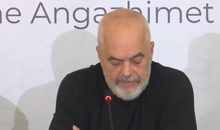

Amid the Alps in Theth, the law punishes even those who try to respect it
2025-07-11 10:14:16
Wanted for theft, 26-year-old arrested in Durrës
2025-07-11 10:03:29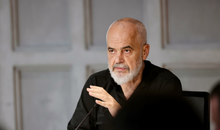
After the dismissals, Rama gathers the mayors in Durrës
2025-07-11 09:42:29
Released on bail, Salianji appears before the Probation Service
2025-07-11 09:34:28

Haxhi Qamil Rama and the directors of the Municipalities!
2025-07-11 09:21:35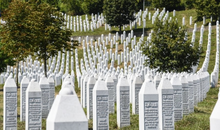
30 years since the Srebrenica massacre in Bosnia and Herzegovina
2025-07-11 09:10:52

From rhetoric to brandy, POLITICO: 9 things Nigel Farage can do in Albania
2025-07-11 08:53:35
Trump announces 35% tariffs on Canadian goods
2025-07-11 08:39:29
Foreign exchange, how much foreign currencies are sold and bought today
2025-07-11 08:24:25

Horoscope, what do the stars have in store for you today?
2025-07-11 07:59:39
Sun and high temperatures, weather forecast
2025-07-11 07:41:09
Morning Post/ In 2 lines: What mattered yesterday in Albania
2025-07-11 07:20:14
Zhupa: In Theth, some Austrian strategic investors want the empty area
2025-07-10 22:57:08
Malltezi: SPAK admits, we are in a process that began with Balla's false report
2025-07-10 22:34:16

Si të çliroheni nga bllokimet emocionale me anë të ushtrimeve
2025-07-10 21:57:24

Lala: Veliaj wanted to return as mayor
2025-07-10 21:40:46

VIDEO/ Brawl in Bolivian parliament, deputies physically clash
2025-07-10 21:20:30


Albania experienced one of the longest heat waves of the last decade
2025-07-10 21:01:09

The Government approves new procedures for declaring residence in e-Albania
2025-07-10 20:39:32

Koka: Northerners will not forget Edi Rama's racist operation in Theth
2025-07-10 20:18:24
The 3 zodiac signs that will be most affected by the 'Full Moon' of July 10
2025-07-10 20:04:49
New director of the National Center of Cinematography appointed
2025-07-10 19:51:12
Korça/ 40-year-old man jumps from fifth floor balcony, in critical condition
2025-07-10 19:40:19
'Tired Woman'/ The Syndrome That Affects Thousands of Women Every Day
2025-07-10 19:34:02
Jane Birkin's original Hermès bag sells for $10 million
2025-07-10 19:26:22

Britain-Ukraine agreement signed for 5,000 Thales missiles
2025-07-10 19:00:25
Fire in Zvërnec, flames endanger two hotels
2025-07-10 18:57:19
Croatia restores compulsory military service
2025-07-10 18:39:01
Spahia: The great truth of the strong accusation of the residents of Theth
2025-07-10 18:35:07


The Supreme Court left him in prison, Meta addresses the 'Constitution'
2025-07-10 17:57:21
New punishment with 'new' regulations
2025-07-10 17:54:46
EU translator fired over fears for Zelenskyy's safety
2025-07-10 17:45:37
'You are a policeman, but not God, take my soul', protest for Agon Zejnullahu
2025-07-10 17:41:21


Video/ Rama repeats the scenario, kneels before Meloni again
2025-07-10 16:56:31
He set fire to a plot of olive trees, 50-year-old man arrested in Shijak
2025-07-10 16:46:19

Rubio: US and Russia have exchanged new ideas for Ukraine peace talks
2025-07-10 16:36:20
Death of 27-year-old, Lipjan Police Commander Resigns
2025-07-10 16:21:28
Video/ An apartment burns in Tirana near the New Bazaar
2025-07-10 16:09:36


Jensila lights up the internet with her birthday greetings to Ledri
2025-07-10 15:42:08
They're full of pesticides! List of 12 products we need to be careful of
2025-07-10 15:31:04

Worker falls from scaffolding in Shëngjin, urgently sent to Trauma
2025-07-10 15:11:03
Malltezi: Within one day they seized my accounts, properties and shares
2025-07-10 15:01:23
EU: Israel has agreed to more aid to Gaza
2025-07-10 14:55:19


Murder of Reni Dobra, 23-year-old's vehicle pulled from the water
2025-07-10 14:29:23
Trump's tariffs on Brazil raise coffee prices
2025-07-10 14:16:07
Ursula von der Leyen survives no-confidence vote
2025-07-10 14:04:27


Fire in Lezha, flames near electrical substation
2025-07-10 13:32:24
Residents clash with police in Theth, a woman faints
2025-07-10 13:24:38
"Rama and Xanun"
2025-07-10 13:15:46

Zodiac signs most likely to get divorced in July 2025
2025-07-10 12:45:51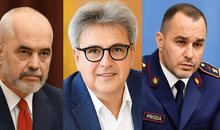
A scapegoat for an illegitimate Republic
2025-07-10 12:35:02
"He has devastated his own nation"/ Berisha: Rama imprisons his opponents!
2025-07-10 12:26:54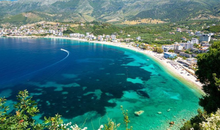

Albanian man injured with knife in Italy
2025-07-10 12:08:55
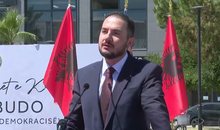


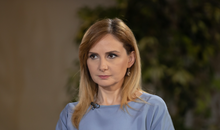


23-year-old in Mat drowned with rope, 4 suspects are being held
2025-07-10 10:58:53
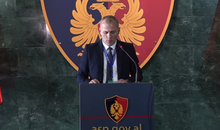
After the dismissals, the new director of the Shkodra Police is appointed
2025-07-10 10:30:10
BIRN: Rama's action for public spaces, a repeated spectacle
2025-07-10 10:29:11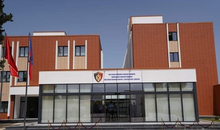
Action in Theth, Shkodra Police leaders dismissed
2025-07-10 10:16:28
Fatal accident on the Tirana-Durres highway
2025-07-10 10:01:58
The incinerator does not exist, but the government continues to increase funds
2025-07-10 09:51:45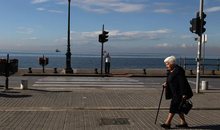
Albania is aging at a rapid pace! 30% of the population is over 60 years old
2025-07-10 09:46:23
End of an era, Modric says 'goodbye' to Real Madrid
2025-07-10 09:36:09
Mount Dukat has been on fire for 6 days, residents request air intervention
2025-07-10 09:27:24

"Poverty on the rise"/ DW: Many people in Germany are not getting paid
2025-07-10 09:08:06
Horoscope, what do the stars have in store for you today?
2025-07-10 08:51:59
